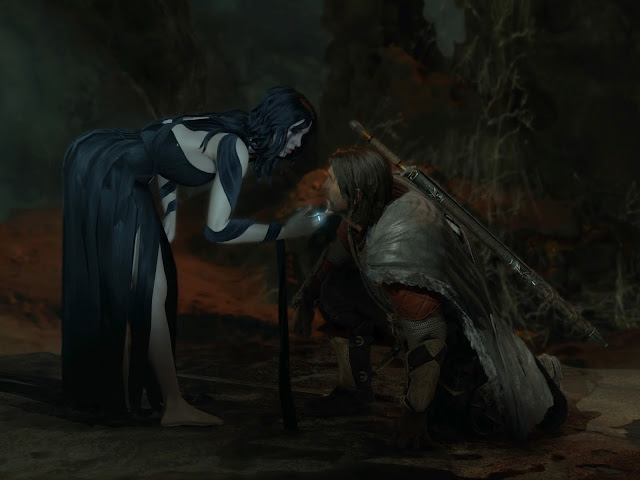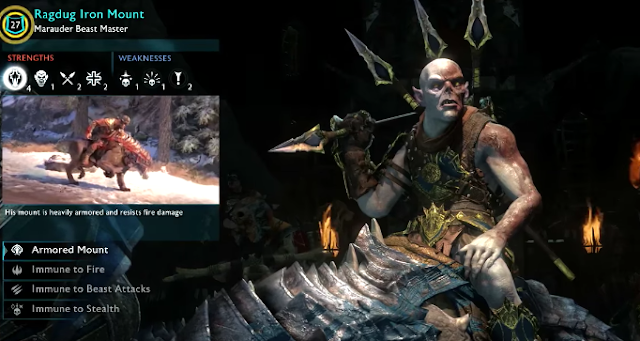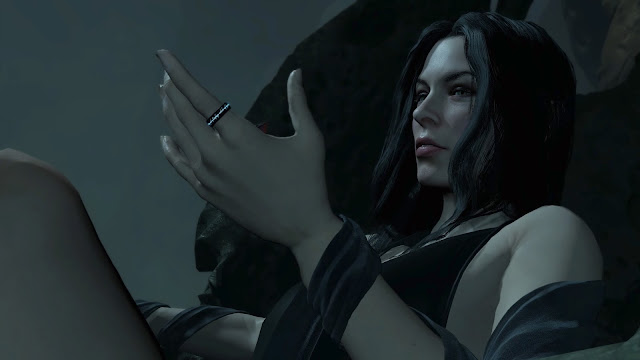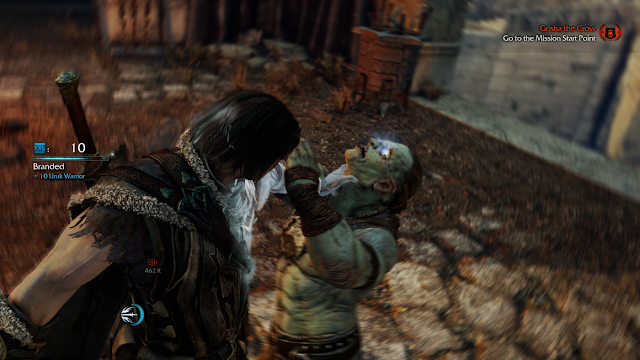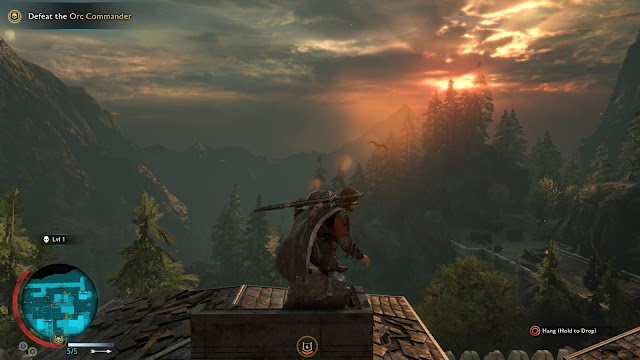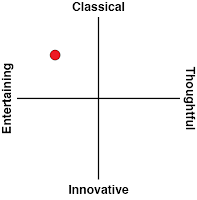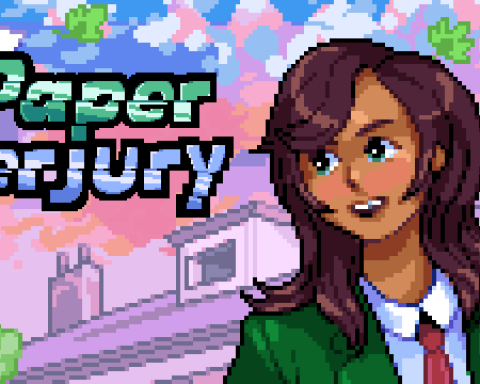Review by Matt S.
There are two ways that a creative person – or group of creative people – can take an existing, beloved franchise, and put a new spin on it; the first is to approach the material with real respect, take the time to really understand what the original artist meant (or likely meant) in their work, and create something new that still respects that.
Say what you will about the Peter Jackson Lord of the Rings films, but I don’t think anyone would ever argue that Jackson did not fundamentally care about the material. He clearly read the book over, and over again, pouring over every sentence and scene, in order to structure his own series of films to reflect both his own sense of creativity, and represent real respect for Tolkien’s work.
The other way you can take a beloved work of art and put your own spin on it is to ignore everything that the original artist intended, and indeed rework the material to be the exact opposite of what was intended. From there you spit something out the other end of the creative process that will probably make bucket loads of money off the back of the license, but fails to demonstrate to the source material any respect whatsoever.
Middle-earth: Shadow of War is the latter, and the complete disrespect it shows Tolkien’s work is apparent within the first couple of minutes where our hero – a male who looks like a nondescript extra from the film set, and who has been killed by Sauron’s forces but resurrected with a thirst for vengeance, runs into Shelob. Not only is it weird that they have a downright civil conversation (Tolkien’s Shelob isn’t exactly civil, nor inclined to talk), and not only is it odd that Shelob takes sides (again, never Tolkien’s intent), but in Shadow of War Shelob is actually a very sexy spider lady – black hair, legs that go on for days, and spiders running up and down her in the most sensuous way imaginable. Now, far be it for me of all people to criticise 1) sexiness in games and specifically 2) fetishistic sexiness in games, but I’ve read Lord of the Rings a dozen times or more myself, and fantasy literature doesn’t get more sexless than it.
Tolkien’s style of writing – dry and academic – was mesmerising for the way he depicted lore, language and put a modern twist on the epic genre; the tales of Beowulf and similar. These were things that appealed to him as an academic, and those were the things he focused on in his own writing. He was clearly uncomfortable with writing around sexuality, and the few female characters that were in the book – including Shelob – were effectively sexless. They joined the men on the battlefields. They manipulated, or led nations and helped, or hindered, Frodo and the other heroes in the novel as the men did. They didn’t slink around in a sexy, leggy, black dress because Tolkien figured it would help sell copies of the book.
The interaction with Shelob gets Shadow of War off to a really poor start. It’s not the only place that the game trashes over everything I know and love about Lord of the Rings, and the game never demonstrates that it truly understands the core themes of the book, but it’s the most immediate example of it. If anything, things get worse in the way the Balrog is treated when he shows up (though thankfully, at least he’s not reimagined as one of the Manpower performers). As a result, the game feels openly hostile to Tolkien’s original vision, and even if you can push past the visual faux pas, it’s still offering a narrative that shows less understanding of the base material than something you’d find on fanfiction.net where people probably do ship Frodo and Shelob together (I wouldn’t know for sure, because no one sane actually goes to fanfiction.net). There are moments where things seem like they might improve; for example, after that first encounter with Shelob our hero joins the fight to help a ragged Gondorian outpost repel an Orcish invasion force. Here, at least, the developers have paid attention to the Lord of the Rings films and have got the architecture and general tone of the environments right. But the writing never quite gets there, there’s too much retconning of Lord of the Rings lore, and the plot has massive holes that Tolkien would never have left.
The gameplay is, if anything, more confused than the narrative. I have a deep dissatisfaction with open world games, and it only gets deeper with every one of them I play. The issue I have with them is that the open world stuff is almost never actually needed, and these games would be far better off as far briefer, more linear experiences. Shadow of War is at its best when you’re in a linear quest, following a specific set of objectives within a small area. Under those circumstances the game’s Assassin’s Creed-inspired stealth system is exciting and intense. Levels are designed beautifully to give players the opportunity to be creative with how they approach challenges and objectives.
And it’s in the missions where the combat set pieces happen, and they’re by far the most intense and exciting part of the game. Mowing through hordes of orcs while deftly parrying their attacks, and sliding under the legs of a rampaging troll to fell him from behind feels every bit as cinematic as the finest moments in the film trilogy’s battle scenes. But between these missions and set pieces is yet another overly large open world in a videogame, with endless icons to track down. Icons representing “treasures” to track down and key targets to take out. Icons that are, ultimately, designed to pad out the length of the game, barely add anything to the narrative or character of the experience, and yet at the same time disrupting the flow of the main narrative by inserting large gaps into it. Another good example from early on; you’ll fight a desperate action to keep the orcs from breaking into the inner keep of this Gondorian fort. After doing so, you’re let loose to explore the city. You can then spend hours chasing down every icon on the game’s map, and not once again will the orcs attack the inner fort, despite swarming all around it, and it being all-but destroyed… that is, until you finally go and activate the next mission. By that time, the illusion of being a part of the defence of a city that is all but destroyed is completely ruined.
This is a problem common to all open world games, and I really wish developers would stop defaulting to open world game design unless it was absolutely necessary from a narrative and thematic perspective. I tolerate it (though still find it largely unnecessary) with the rare few open world games, such as Assassin’s Creed, because I play those games for the history and the time period, and to an extent an open world does make sense there in letting me explore a historical city or location that I find interesting. But as I already outlined above, I’m in no way engaged with the world of Shadow of War, so exploring it was nothing but a chore.
Shadow of War does attempt to justify its open world with its much-publicised Nemesis system, which in fairness is an enhancement on what we saw in the game’s predecessor. There are more ways to go about taking down marks, and there’s some momentary fun involved with firstly tracking down where these monsters are hiding, then figuring out a way to exploit their weakness, and then cruising in for the easy kill.
But this too ends up being arbitrary after a couple of successful hunts, and part of the issue is that it runs counter to the sense of freedom that the game so desperately wants you to believe you have otherwise. If you don’t target the specific weaknesses of a particular target, then the only other option is to wade in for a tough – but ultimately standard – ‘boss’ fight. Or to put it another way, with these nemesis battles, the game’s idea of “rewarding” you for doing something clever and against the grain is to punish you. Spend an hour slowly inching your way into a position to do an aerial stealth kill on one of these monsters that the game clearly didn’t plan on you doing? Jokes on you if that’s not one of their weaknesses, because it’s all-or-nothing with these things, and you’ll get no benefit from playing so well. Instead, the orc will instantly deflect your attack and then you’ll be swamped by a horde of his allies. The same goes for the capture of fortresses and the raising (and use) of your army. There’s always the sense that there’s only ever one right way to do these things.
So you might be able to take down these leader orcs in a couple of different ways, but it’s highly restrictive and, ultimately, lacking in creativity. Artificiality in the gameplay itself is a real issue that has crept into far too much of blockbuster game design. Game developers are so focused on getting you to play the game the way they want to, so you can be impressed with their smoke-and-mirrors tricks dressed up as “features”, that these games are no longer consistent in how they play. And, again, inconsistency tends to break with immersion.
There’s also some genuine appeal in dominating Sauron’s forces and bending them to your will, making an orc army of sorts of your own. This feature is new to the game, and it’s probably the highlight of the whole thing, as it introduces a touch of resource management into the experience, and it’s enjoyable to watch the scale of battles play out when you bring your dominated forces to bear in taking on the forces of Sauron. The downside to doing this is that the developers decided to give the orcs you can dominate a sense of personality, and too many of them try too hard to be funny. A bit of comedic relief always helps a narrative, and I laughed the first time one of my orcs broke out into song as he waded into battle, but this game’s lost sight of the abject evil that Tolkien’s orcs were actually meant to represent.
Finally, don’t even get me started on the way the game has hamfisted loot drops, loot boxes, and all other manner of “make players play forever” nonsense into the game. Shadow of War isn’t convincing as a Diablo clone, so I don’t know why the developer ever thought that throwing an endless stream of shiny weapons at the player would resonate. The skills tree is laughably simple, too; Witcher 3 this game is not. If you’re going to build RPG mechanics into your game, do it properly, and do it because it’s an important part of your game, and not just because experience levels and new loot tend to keep people playing (and thus more likely to spend money).
Shadow of War looks gorgeous, as you would expect a AAA-blockbuster to do. It plays incredibly smoothly, and as far as open world games go, this one’s relatively bug free. This is all to be expected for a game with this kind of budget, and doesn’t really warrant a comment in the context of a review. But the whole experience feels so utterly soulless it’s hard to really care about any of it. It feels like a game that has been carefully pieced together with every feature, bit of narrative and gameplay moment structured out of commercial desire, rather than any love or respect for the Lord of the Rings franchise. And as far as I’m concerned, for a game that’s quite explicitly a Lord of the Rings game, that’s a fail.
– Matt S.
Editor-in-Chief
Find me on Twitter: @digitallydownld

